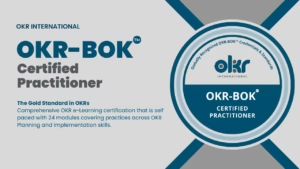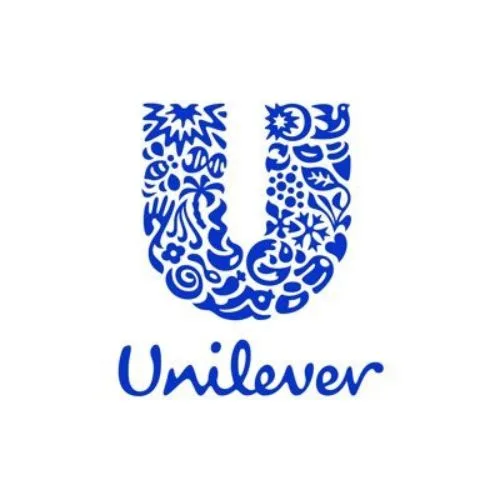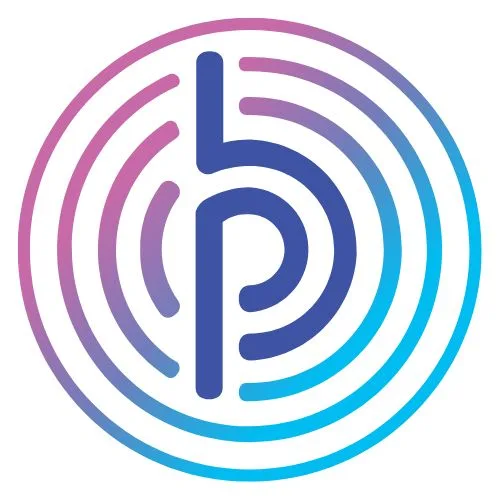
People Trained
DISC Reports - Customer Service Version
Industry Sectors Covered
Companies using the highly acclaimed TTI Success Insights DISC Reports
Boost Your Sales Performance: Mastering Client Interactions with DISC
This in-depth workshop provides attendees with the necessary skills to manage conflicts efficiently, focusing on understanding varied behavioral/emotions styles using DISC profiling. It teaches strategies to enhance communication skills and handle difficult situations effectively. Participants will gain insights into adapting their interaction styles to meet diverse needs, ensuring productive and harmonious conflict resolution.
Course Content
“Sales Training using DISC” is a specialized program crafted to refine sales techniques through the application of DISC profiling. This dynamic workshop provides participants with the insights to understand diverse client behaviors and preferences, enabling them to tailor their sales strategies effectively. Participants will learn to utilize DISC profiling for identifying distinct client style patterns and emotional triggers, enabling them to adjust their sales approach for maximum impact. The program aims to empower sales professionals to navigate client interactions more skillfully, build stronger relationships, and achieve successful, client-focused outcomes.
Introduction to DISC
Brief introduction of DISC, its construct and history.
DNA of DISC Assessment
Dominance, Influence, Steadiness & Compliance.
Self-Discovery using DISC
Discovering personal strengths and weaknesses using your own DISC profile.
How People Buy & Sell
Fundamentals of Sales and how selling psychology works.
Recognizing DISC Profiles in Clients
Learn to identify buyer behavior in potential clients.
Building Rapport with DISC
Rapport-building strategies for each DISC style
Adapting Sales Strategies
Develop tailored sales approaches for different buyer styles.
Handling Objections
Tailored objection handling techniques; Real-life examples and role-play exercises.
Closing Deals with DISC Profiling
Timing and decision-making cues; Overcoming final hurdles in the sales process.
Nurturing Client Relationships
Long-term relationship building; Upselling and cross-selling techniques.
DISC in Complex Sales Scenarios
Strategies for high-stake negotiations; Case study and group discussions.
Post Training Action Planning
Developing personal action plans for managing sales techniques using DISC.
Who should attend?
- Sales Representatives
- Sales Managers
- Customer Relationship Managers
- Business Development Professionals
- Marketing Professionals
- Small Business Owners
Key benefits
- Enhanced Understanding of Client Behavior
- Increased Sales Effectiveness
- Better Client Relationships
- Effective Objection Handling
- More cross selling and upselling
- Better Client Communication
Course methodology
- Instructor-led Facilitation
- Cohort Learning - Synergogy
- Case Work & Scenarios
- Interactive Real Play
- Personal Reflection and Action Planning
Course materials
- Personal DISC Profile Report
- Participant Workbook
- Case Study Booklets & Handouts
- Ready Reckoner Laminates
- Personal Action Plan Template
Schedule a 30 minute call to discuss your needs.
Choose from a Range of customizations
Choose from a range of solutions to suit your every need. Our course can be customised to your industry or business unit context. What’s more, we are happy to deliver this course face to face or in virtual, instructor-led formats.
Other Courses Using DISC
Enhance EQ
Enhance your Emotional Intelligence (EQ) and interpersonal skills using the DISC framework, fostering self-awareness and empathetic connections.
Team Building
Boost team synergy and collaboration by applying the DISC framework, enhancing understanding and communication within your team.
Conflict Management
Improve your conflict management skills through the DISC framework, Transform Conflict into Collaboration using proven methods.
Customer Service
Enhance your customer service skills by applying the DISC framework, enabling better understanding of customer behaviors & improving interaction quality.
Personal Development
Advance your personal development by utilizing the DISC framework to deepen self-understanding and enhance your interpersonal relationships.
Leadership Coaching
Foster personal growth by leveraging the DISC framework, enhancing self-awareness and interpersonal skills for holistic personal development.
Communication Skills
Improve your communication skills through the DISC framework, fostering clearer understanding and more effective interactions with others.
First Time Managers
For new managers, enhance leadership & team management skills using the DISC framework, fostering effective team management and productivity.
Frequently asked questions
Everything you need to know about Sales Training Using DISC.
Sales training is a comprehensive process aimed at empowering sales professionals with essential knowledge, skills, and methodologies to enhance their ability to sell products or services successfully. It focuses on fostering significant improvements in sales techniques, understanding of the sales process, and personal attributes that drive effective selling behaviors. Recognizing sales training as a critical change management initiative, it is designed and implemented to achieve maximum sales performance and success. This approach ensures that sales teams are well-equipped to meet and exceed sales targets through strategic and skillful selling.
Sales training is a critical intervention when addressing various challenges and leveraging opportunities within a sales team or in response to market dynamics. It’s necessary when sales are declining as it revitalizes selling techniques. If the return on investment on sales activities is diminishing, training can identify and rectify inefficiencies. It ensures new team members are up to par, equips teams to contend with rising market competition, and prepares them for new product launches. Training aligns with new leadership strategies and helps achieve performance goals. It can boost motivation and adapt sales strategies to changing buyer behaviors. Aggressive sales targets often require the advanced skills that training provides, and strategic shifts in sales processes need training for effective execution.
Training is also indispensable for aligning sales practices during mergers or acquisitions, developing key sales skills such as communication and negotiation, and enhancing product knowledge for more effective value communication. It helps sales professionals better understand and meet customer needs, keeps sales teams adaptable to market changes, and empowers them to overcome customer objections. Sales training increases efficiency and productivity, ensuring consistency in the sales message, which builds brand credibility, and aims to enhance customer satisfaction through skilled sales approaches. Finally, strategic alignment with the broader business strategy and a commitment to continuous learning are essential to maintaining a competitive edge.
The ideal cadence for sales training is influenced by a mix of factors, including shifts in the industry, updates to products or services, and the existing capabilities of the sales team. While the specifics can vary, a regular schedule is advisable to keep the team sharp and up-to-date. Common practice suggests organizing training sessions on a quarterly or semi-annual basis to ensure continuous skill enhancement and alignment with current market demands.
Sales training equips professionals with a suite of skills crucial for effective selling. These skills include:
- Communication Skills: Sharpening both verbal communication and active listening to engage effectively with clients.
- Interpersonal Skills: Enhancing the ability to interact successfully with others, establishing rapport and trust.
- Relationship Building: Learning to create and maintain strong, lasting connections with customers.
- Empathy: Developing the capacity to understand and share the feelings of clients, aiding in tailored sales solutions.
- Product Knowledge: Gaining a deep understanding of product features, benefits, and differentiators.
- Sales Techniques: Mastering various sales methodologies to apply the most effective approach in different situations.
- Negotiation Skills: Acquiring strategies for strategic negotiation to close deals with favorable terms.
- Time Management: Improving the ability to prioritize tasks and manage sales activities efficiently.
- Adaptability: Cultivating flexibility to adjust to new challenges and changing market conditions.
- Problem-Solving: Learning to identify and resolve customer problems, often turning challenges into sales opportunities.
- Presentation Skills: Enhancing the ability to deliver compelling and persuasive presentations.
- Prospecting: Developing strategies to identify and cultivate potential customers.
- Closing Techniques: Gaining the skills to effectively close sales, securing a commitment from the customer.
- Customer-Centric Approach: Focusing on putting the customer’s needs first to drive sales and loyalty.
- Technology Utilization: Leveraging the latest sales technologies to streamline processes and improve engagement.
- Self-Motivation: Building internal drive to achieve sales goals and continuously improve performance.
- Continuous Learning: Emphasizing the importance of ongoing skill development and staying abreast of industry trends.
A sales training program is a structured professional development initiative designed to enhance the abilities of sales professionals. It can be tailored for individuals, teams, or entire corporate structures, with a focus on cultivating strategic skills and effective communication techniques. The core aim of such programs is to empower sales personnel to better connect with their clients, navigate the sales process with expertise, and successfully close transactions.
Effective sales training programs encompass a wide range of topics designed to provide a holistic development path for sales professionals. Key modules include:
- Introduction to Sales: Establishing a foundation in sales principles and practices.
- Product Knowledge: Detailed understanding of the product or service offerings.
- Customer Understanding: Techniques to comprehend customer needs and behavior.
- Effective Communication: Enhancing verbal, non-verbal, and written communication skills.
- Active Listening Skills: Developing the ability to listen actively to customer cues.
- Building Rapport and Trust: Strategies to establish trust and rapport with clients.
- Questioning Techniques: Employing targeted questions for deeper customer insights.
- Handling Objections: Techniques for effectively addressing customer objections.
- Closing Techniques: Methods to successfully conclude sales transactions.
- Time Management: Skills for prioritizing tasks and managing sales time effectively.
- Prospecting and Lead Generation: Identifying and nurturing potential sales leads.
- Presentation Skills: Crafting and delivering compelling sales presentations.
- Negotiation Skills: Mastering the art of negotiation in the sales context.
- Relationship Building and Customer Retention: Strategies for long-term customer loyalty.
- Cross-Selling and Upselling: Techniques for expanding customer purchases.
- Competitor Analysis: Understanding and leveraging competitive landscape insights.
- Technology Utilization: Applying the latest technology for sales efficiency.
- Emotional Intelligence: Recognizing and managing emotions in the sales process.
- Networking Skills: Expanding professional networks for opportunities.
- Continuous Learning and Professional Development: Encouraging ongoing skill enhancement.
- Ethical Selling Practices: Upholding integrity and ethics in sales.
- Data Analysis Basics: Utilizing data for informed sales decisions.
- Feedback Receptiveness: Integrating constructive feedback into sales practice.
Customizing sales training for distinct industries and businesses involves creating a strategic, multifaceted program that addresses specific challenges and leverages opportunities unique to each sector. Key to this approach is developing industry-specific content that resonates with the sales team’s daily experiences, including case studies, examples, and role-play scenarios. Training must also cover comprehensive product knowledge, ensuring sales representatives can communicate the unique selling points effectively.
Crafting detailed customer personas is crucial to help salespeople understand and cater to the varied needs of their clientele. Integrating compliance training is essential to uphold legal and ethical sales practices within industry regulations. Providing insights into current market trends and conditions equips sales teams with the knowledge to formulate informed sales strategies. Sales techniques should be refined and adapted to what has been proven successful within each industry, with training differentiated to cater to the distinct roles within the sales team, from novices to seasoned professionals. Proficiency with technological tools common to the industry can give teams a competitive edge. Preparing teams to handle both common objections and unique industry challenges ensures readiness for real-world situations.
Sharing success stories and best practices inspires excellence and provides practical models to emulate. Custom sales playbooks can serve as a valuable reference, outlining effective sales processes and strategies specific to the industry. Facilitating networking opportunities within the industry can enhance learning and connection building. Addressing cultural nuances is also vital for ensuring that sales interactions are respectful and relevant across different regions. Implementing a system for ongoing feedback helps keep the training program current and effective, while flexible programming and dynamic coaching ensure that the training is relevant to everyone’s role, experience level, and practical application in real-world scenarios.
Utilization of various tools and platforms for process efficiency and productivity enhancement.
- CRM Systems: Offer insights into sales opportunities.
- E-Learning Modules: Tailored to specific training needs.
- Videoconferencing: Facilitates group collaboration.
- Webinars/VILT: Provide accessible training options.
- Gamification: Makes learning interactive and engaging.
- AI and ML: Personalize the learning experience.
- Mobile Learning: Offers flexibility in training.
- Sales Enablement Platforms: Centralize sales resources.
- Video-Based Training: Delivers visually engaging content.
- Collaboration Tools: Enhance team coordination.
- VR for Product Demos: Creates immersive learning experiences.
- Assessment and Analytics: Track progress and performance.
- Virtual Sales Coaching: Provides personalized guidance.
- Adaptive Learning Platforms: Customize content based on learner progress.
- Remote Collaboration and Communication: Keeps teams connected.
Sales training plays a pivotal role in improving sales performance metrics. It acts as a lever that can uplift various key performance indicators (KPIs) integral to a business’s success. By providing sales teams with refined skills and strategies, training can lead to better conversion rates, an increase in the average size of deals, improved rates of customer retention, and an overall revenue boost. Training contributes to a deeper comprehension of the sales process and more effective engagement with customers, empowering sales professionals to meet or exceed their sales targets, which in turn supports the growth and profitability of the company.
Effective delivery of sales training incorporates a blended approach that employs multiple methods to cater to different learning styles and needs. Interactive workshops can offer hands-on learning experiences, while online training modules provide flexibility and easy access to learning material. Personalized sales coaching and mentoring are invaluable for tailored guidance, and role-playing exercises simulate sales scenarios for practice without risk. Gamification introduces a competitive, interactive element to training, making learning enjoyable and engaging. Case studies and real-life scenarios help in applying theoretical concepts to actual business challenges, and on-the-job training (OJT) brings learning into the workplace, allowing for immediate application of new skills.
Webinars and virtual instructor-led training (VILT) make it possible to deliver live, interactive training sessions remotely, expanding accessibility. Self-study materials support autonomous learning at an individual’s own pace, while sales simulations and virtual reality (VR) provide immersive experiences that are both engaging and educational. Collaborative learning sessions encourage teamwork and shared learning experiences, and guest speakers or industry experts offer valuable insights and real-world perspectives. Continuous learning platforms provide resources for ongoing education, and peer-to-peer learning facilitates the exchange of knowledge among colleagues. Finally, microlearning modules break down complex training content into short, focused segments that are easier to digest and retain.
Sales training can significantly enhance customer relationships by empowering salespeople with the skills needed to engage effectively and empathetically with customers. Training in active listening helps sales representatives to truly understand customer needs and concerns, fostering a deeper connection. Consistent communication post-purchase, emphasized in follow-up training, ensures that customers feel valued and satisfied with their service. Salespeople are taught clear and persuasive communication techniques to articulate value effectively.
Empathy training is also vital, as it enables sales teams to connect with customers on an emotional level, which is fundamental in understanding and responding to their needs. With a firm grasp on consultative selling skills, salespeople learn to offer solutions rather than just products, thereby positioning themselves as trusted advisors. Problem-solving skills training prepares them to address and resolve customer issues efficiently, further strengthening the customer-sales relationship.
A customer-centric sales approach puts the customer’s needs at the forefront of the sales process, ensuring that strategies and interactions are aligned with the customer’s experience. In-depth product knowledge and expertise enable sales representatives to provide accurate and comprehensive information, which builds trust and credibility. Effective presentation skills allow sales teams to showcase products and services compellingly, enhancing the customer’s understanding and interest.
Relationship-building techniques are crucial for cultivating strong, ongoing connections with customers, which is essential for long-term loyalty. Sales training also covers customer retention strategies, teaching sales teams how to keep customers engaged and loyal to the brand. Feedback and adaptation skills ensure that sales strategies and services are continually refined based on customer input, demonstrating a commitment to meeting their evolving needs.
Additionally, sales training includes cross-selling and upselling techniques that identify opportunities to offer customers additional value, while responsive communication training emphasizes the importance of timely and thoughtful interactions. Post-sale relationship management is also a focus, which is essential for maintaining a positive connection after the initial transaction. Lastly, effective utilization of technology, such as CRM tools, is taught to help maintain and analyze customer interactions systematically, providing a structured approach to relationship management.
Sales training is essential for equipping sales teams to adapt to the evolving needs of customers in a dynamic market. A customer-centric approach in training ensures that the focus remains on customer satisfaction and experience. It involves assessing and enhancing sales competencies to address any skills gaps. Keeping abreast of market research and trends allows sales professionals to stay informed about shifts in customer preferences and expectations.
Training programs must align with current business strategies and include methods for clear and persuasive customer communication. Emphasizing empathy enables sales representatives to understand and connect with customer perspectives and challenges. Solution-based selling shifts the focus from product features to how these products can solve customer problems. Sales processes must be adaptable, allowing for flexibility to meet the ever-changing demands of customers.
Enhancement of product knowledge is crucial, ensuring that sales teams are up-to-date and can provide accurate information. Cross-functional collaboration is encouraged to leverage insights from different departments, which can enrich customer understanding and service. Training also includes digital and social media skills, which are essential for engaging with customers in the digital age.
Fostering a culture of continuous learning ensures that sales teams can keep pace with the rapid evolution of customer needs and preferences. Role-playing and scenario-based training allow sales teams to practice and refine their interactions with customers. Feedback loops from customers are instrumental in refining sales approaches, making sure they remain effective and relevant.
Adopting the latest technology can enhance engagement and understanding of customer needs. Competitor analysis is also part of sales training, providing insights that help anticipate and meet customer needs more effectively. Data-driven decision-making is emphasized, using customer data to inform sales strategies and better meet customer expectations. Agile selling strategies are encouraged, promoting quick adaptation to any shifts in customer behavior.
To gauge the effectiveness of sales training programs, a blend of leading and lagging indicators should be used, providing a comprehensive view of both the immediate and long-term impacts of the training. Here are the metrics to consider:
- Leading Indicators:
- Training Participation Rates: Track the percentage of employees attending the training sessions.
- Completion of Learning Modules: Monitor the completion rates of assigned training modules.
- Pre- and Post-Assessment Scores: Measure the knowledge gained by comparing assessment scores before and after training.
- Sales Activity Metrics: Observe changes in daily sales activities and behaviors.
- Technology Adoption Rates: Evaluate how quickly and effectively new sales tools are being utilized post-training.
- Manager Feedback: Gather qualitative insights from sales managers on the team’s progress and performance.
- Objection Handling Simulations: Assess performance in simulations designed to test objection handling skills.
- Lagging Indicators:
- Revenue Growth: Look at the increase in revenue following the training period.
- Sales Conversion Rates: Track changes in the percentage of prospects converted to customers.
- Average Deal Size: Monitor any changes in the average size of closed deals.
- Customer Satisfaction Scores (CSAT): Use CSAT scores to assess the impact of training on customer interactions.
- Time to Close Deals: Observe any shifts in the average time it takes to close a deal.
- Lead Conversion Rates: Look at the changes in the rate at which leads are converted into sales.
- Retention Rates: Monitor both customer and employee retention rates post-training.
- Post-Training Performance Reviews: Conduct reviews to assess skill application and performance improvements.
- Return on Investment (ROI): Calculate the ROI of the training by comparing the benefits gained to the costs incurred.
- Competitive Benchmarking: Compare sales metrics against industry or direct competitors.
- Employee Engagement and Retention: Evaluate levels of employee engagement and turnover rates after training interventions.
- Customer Retention Rates: Track any changes in the rate at which customers continue to do business with the company.
Ensuring the long-term effectiveness of sales training involves a commitment to continuous improvement and reinforcement. This can be achieved through:
- Ongoing Skill Assessments: Regular evaluations to measure skill retention and identify areas for further development.
- Continued Support: Providing consistent support and resources to address emerging challenges and questions from the sales team.
- Training Updates: Keeping the training content up-to-date with the latest industry trends, technologies, and best practices to maintain relevance.
- Reinforcement Activities: Implementing post-training activities that reinforce learning, such as quizzes, role-playing, and group discussions.
By integrating these strategies into the sales training program, organizations can help ensure that the benefits of the training are sustained and continue to contribute to sales success over time.
Still have questions?
Can’t find the answer you’re looking for? Please feel free to write to us.
Our Blog

OKR-BOK™ Certified Practitioner: The #1 OKR E-Learning Certification
OKR-BOK™ Certified Practitioner: The #1 OKR E-Learning Certification for Strategy Professionals For professionals committed to mastering strategy execution, the OKR-BOK™ Certified Practitioner

Best AI Legal Certification
Explore the Best AI Legal Certification to enhance your legal practice with artificial intelligence tools

Best AI Certification for Designers
Explore the Best AI Certification for Designers to enhance your skills and stay relevant in

Best AI Certification for Educators
Explore the Best AI Certification for Educators and enhance your teaching skills to meet the




















